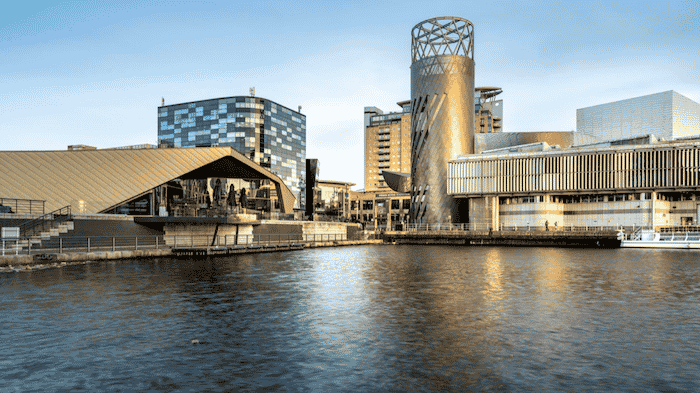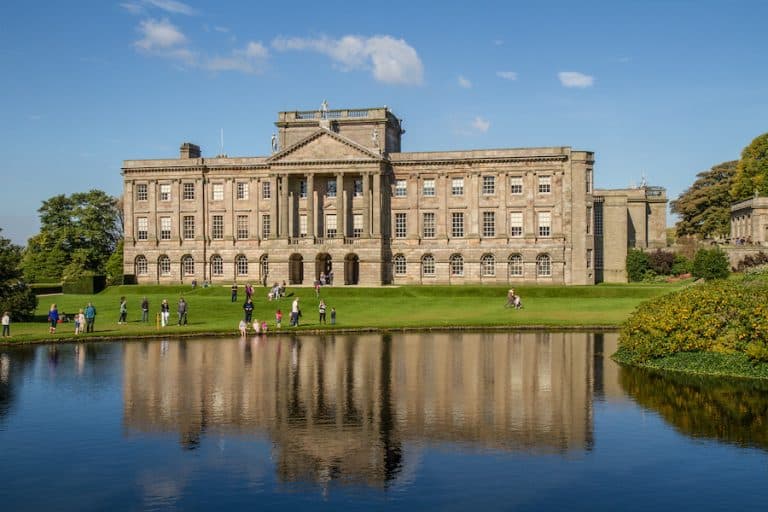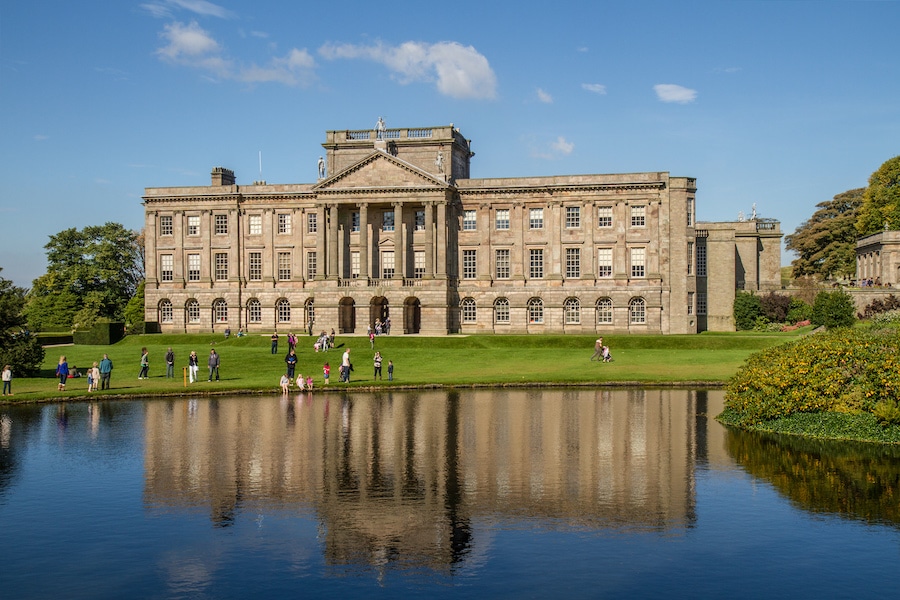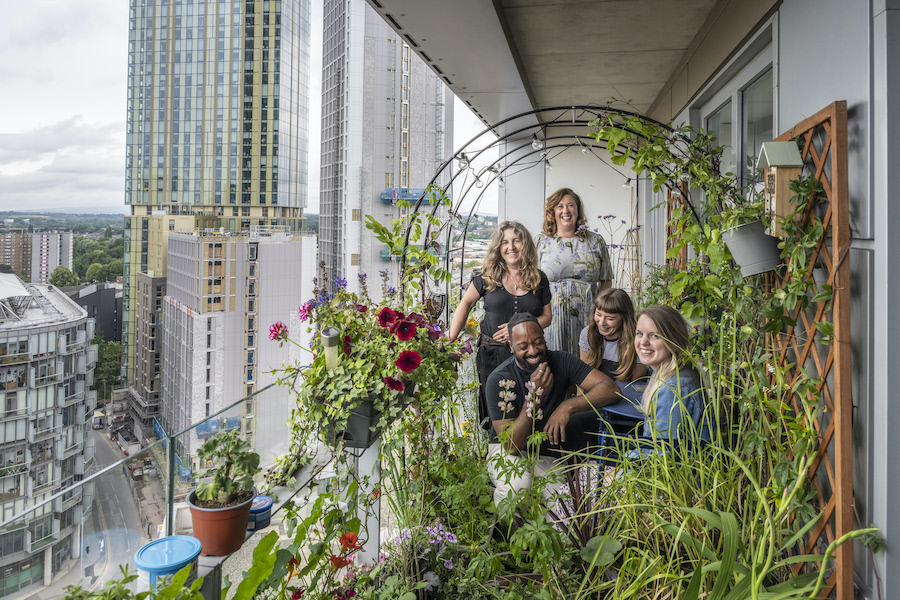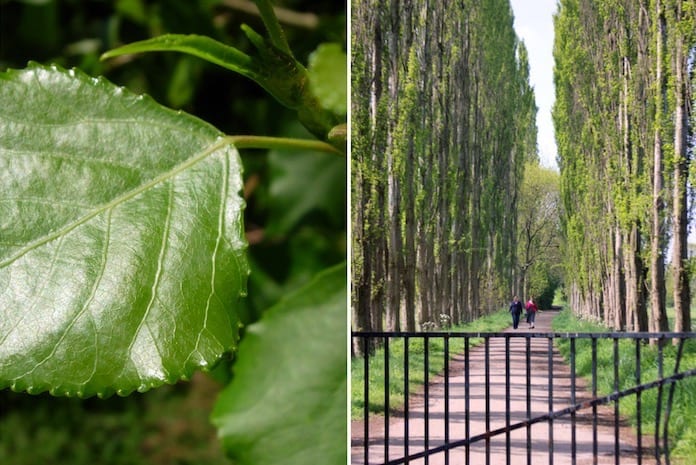
Today, the Manchester poplar is a rare sight. One of the country’s rarest native trees, in 2000 the species were struck by a virulent disease, commonly known as black scab, and have been in decline since.
But the tree itself has a fascinating history and is such a part of Manchester’s own development that conservation groups are fighting hard to save it.
This history harks back to the industrial revolution, which famously brought massive and unplanned urbanisation to Manchester as a result of the textile boom – earning the city its nickname ‘Cottonopolis’.
But as we know, when Manchester became the first industrial city in the world, it also became one of the most polluted as a result of the expanded manufacturing.
By 1913 many trees in the city had died – suffocated by a layer of soot, sulphur-dioxide and other air pollutants created by burning vast amounts of coal. But the hardy native black poplars tolerated these difficult conditions and even thrived – championing the industrial landscape while giving workers a green escape.
In the 1930s, as Britain entered the Great Depression following the Wall Street Crash and unemployment soared, these unlikely trees came to the rescue again.
The Government and Manchester Parks and Cemeteries Committee hired men to go out daily on bicycles with a small iron bar (to create holes in the ground) and a bunch of poplar saplings.
This ‘Unemployment Relief Works’ project ultimately led to Manchester Poplars popping up in parks, towpaths and fields across the city region.
The tree is a good example of widespread use of a single clone for urban planting, as there appears to be no historical evidence for it ever being planted by seed. Rather, it seems every Manchester poplar in the region was hand sown by a man needing a job.
Now, after years in decline, City of Trees is pushing forward with a new initiative to plant rare saplings in each of the 10 boroughs of Greater Manchester.
Acting in partnership with Chester Zoo, around 80 trees will be planted in total in locations including Cutacre County Park in Bolton, Boz Park in Bury and Bickershaw in Wigan.
25 of the trees have been grown as seedlings by Chester Zoo.
Andy Long, woodlands officer at City of Trees, comments: “Unfortunately this most Mancunian of trees is now a rare sight. In 2000 a virulent disease hit the Manchester Poplar and many died out.
“With its roots firmly in Manchester’s history at the heart of the industrial revolution, these trees need to be celebrated and their heritage revealed. We’re thrilled to be bringing them back to Greater Manchester”.
- This article was last updated 5 years ago.
- It was first published on 13 March 2020 and is subject to be updated from time to time. Please refresh or return to see the latest version.
Did we miss something? Let us know: press@ilovemanchester.com
Want to be the first to receive all the latest news stories, what’s on and events from the heart of Manchester? Sign up here.
Manchester is a successful city, but many people suffer. I Love Manchester helps raise awareness and funds to help improve the lives and prospects of people across Greater Manchester – and we can’t do it without your help. So please support us with what you can so we can continue to spread the love. Thank you in advance!
An email you’ll love. Subscribe to our newsletter to get the latest news stories delivered direct to your inbox.
Got a story worth sharing?
What’s the story? We are all ears when it comes to positive news and inspiring stories. You can send story ideas to press@ilovemanchester.com
While we can’t guarantee to publish everything, we will always consider any enquiry or idea that promotes:
- Independent new openings
- Human interest
- Not-for-profit organisations
- Community Interest Companies (CiCs) and projects
- Charities and charitable initiatives
- Affordability and offers saving people over 20%
For anything else, don’t hesitate to get in touch with us about advertorials (from £350+VAT) and advertising opportunities: advertise@ilovemanchester.com

“Manchester keeps it real” Comic opens up on trauma, toxic exes, and turning pain into punchlines

Bury FC complete one of football’s greatest comebacks with Gigg Lane glory

Review: The 39 Steps at Bolton Octagon Theatre is ‘wonderful, whacky and wildly imaginative’

Discotheque Royale vs Piccadilly 21s: which was your favourite 90s Manchester club?
